From March 1 to 3, the first eco-volunteer project “Syr qorǵany – sekseýil” took place in the Kyzylorda region. The mission of this project is to restore the region’s ecosystem and protect it from the consequences of the Aral Sea ecological disaster. To achieve this goal, Almaty Management University recruited about 80 volunteers. With the support of the Ministry of Ecology and Natural Resources of the Republic of Kazakhstan, as well as local executive bodies, the participants planted 5,100 saxaul seedlings at the bottom of the Aral Sea.
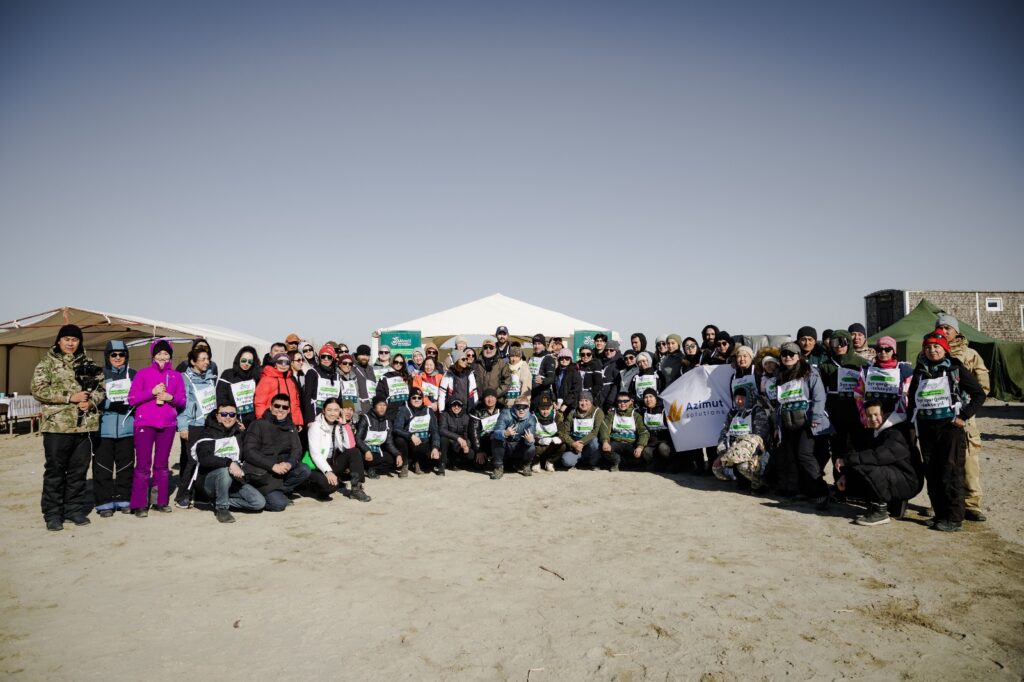
The volunteers came from far and wide. There were participants from Almaty, Talgar, Astana, Tashkent, and even the United States. Active citizens of the Kyzylorda region, namely residents of Shieli and Zhanakorgan, also took part. Over three days, the volunteers covered 1,030 kilometers.
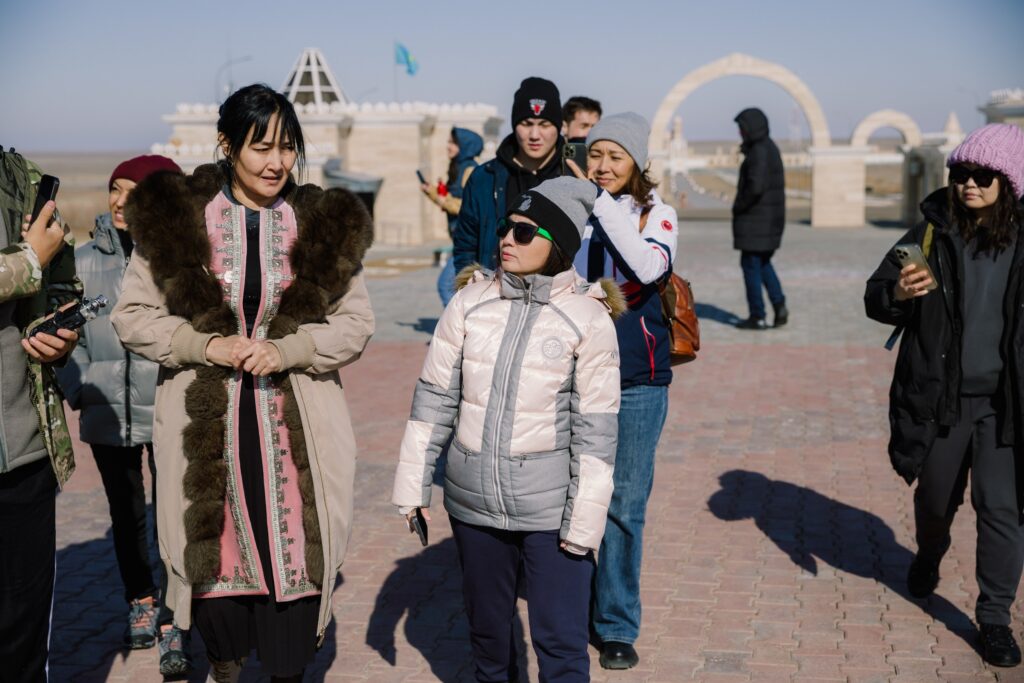
On the first day, the participants visited the Korkyt-Ata memorial complex, receiving the blessing of their ancestors. Then, in the evening, a foresight discussion was held with the participation of Maria Zadneprovskaya, an expert from the International Fund for Saving the Aral Sea, and Sergei Azimov, an honored worker of Kazakhstan and film director. During the discussion, the audience watched the director’s 1988 film Zhoktau, which tells the story of the Aral Sea’s difficult fate.
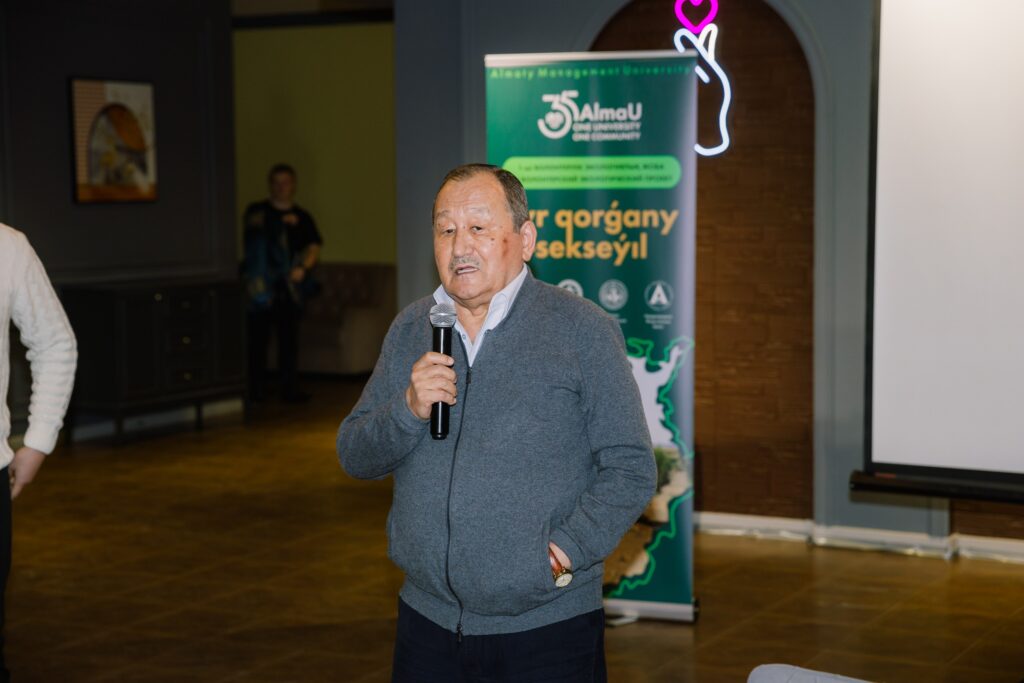
“The Aral Sea cannot be revived. But improving our country, our native village, and the ecological situation is something that is within our power. That is why I myself am participating in the project as a volunteer. Instead of criticism and loud words, we can contribute in this way. The most important thing is that with the help of such projects, we can instill a national ecological consciousness,” said the famous film director.
The next day, about 80 volunteers picked up shovels and worked together to plant 5,100 saxaul seedlings on the dried-up bottom of the Aral Sea.
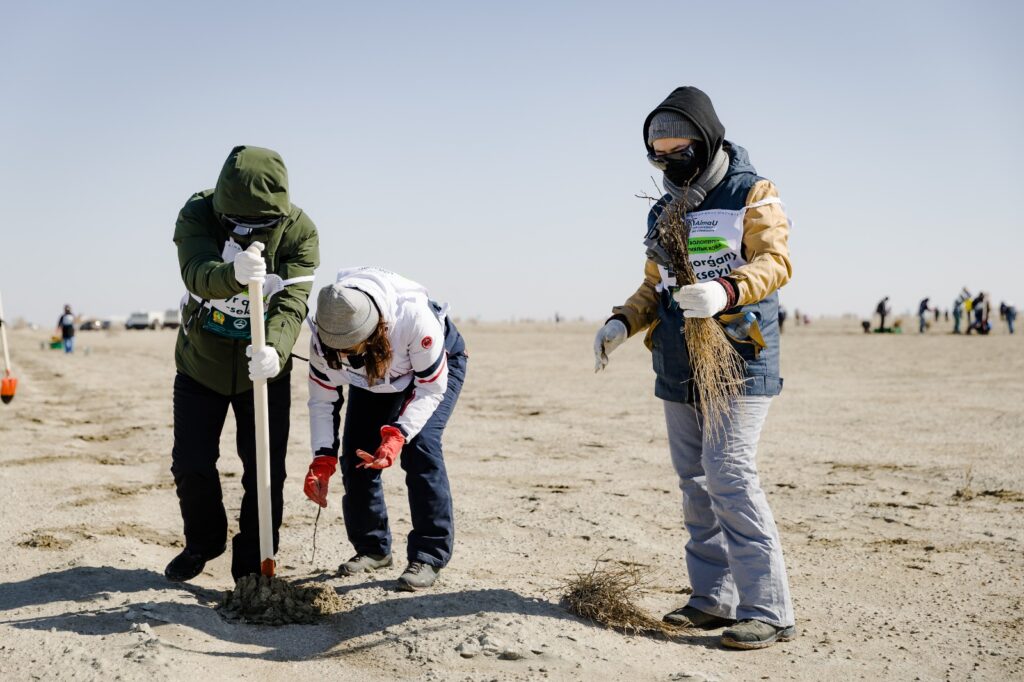
Alibi Gazizovich, Director General of the Republican Forest Selection and Seed Production Center of the Forestry and Wildlife Committee of the Ministry of Ecology, Geology, and Natural Resources of the Republic of Kazakhstan, noted the uniqueness of the project:
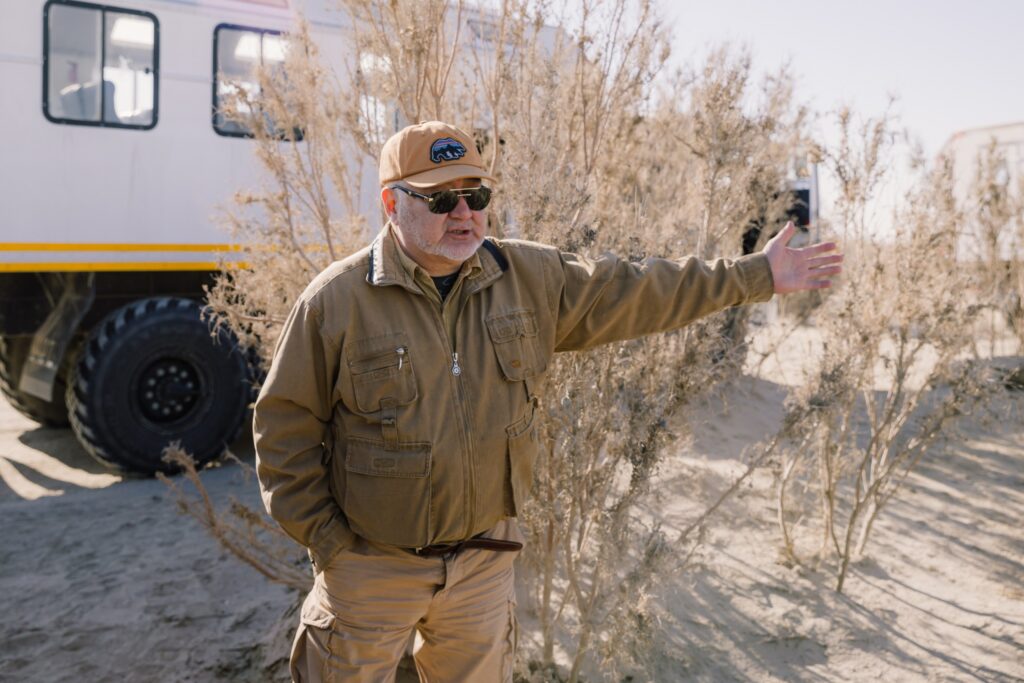
“Saksau is being planted on 1 million 100 thousand hectares. Between 2021 and 2023, saksau was planted on 545,000 hectares of land. Now half of the work remains. The arrival of volunteers to the Aral Sea to plant saksau is truly a historic event. Before that, there were many donors from abroad. For example, from South Korea, Germany, and America.
Saxaul is a sacred tree that cannot be cut down with an axe or a saw. The roots of a single bush can hold 4 tons of sand and salt. Our country has the largest number of saxaul trees. In the Kyzylorda region, in Moyinkum, Sozak, and even in Balkhash, you can find saxaul. As a rule, there are two types of saxaul: black and white. As a result of the project, black saxaul was planted. It is worth noting that we planted the seedling after it was completely saturated with slurry. Saxaul needs sufficient moisture and mineral nutrition, as the slurry consists of hydrogel and manure. Therefore, there is no need to water the seedlings. And in just four years, it will produce seeds.”
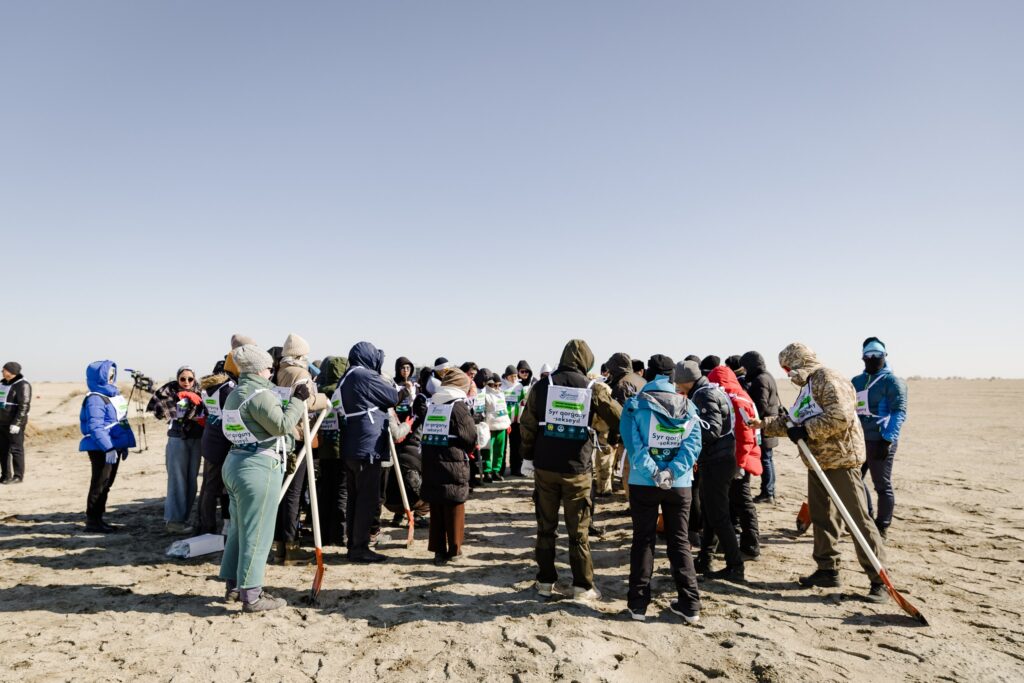
Bauyrzhan Zhumat, coordinator of the National Volunteer Network in Astana, shared his impressions of the project:
“For the first time in history, volunteers visited the Aral Sea and planted saxaul seedlings. Before that, international organizations and institutions provided assistance. Therefore, I am filled with a special sense of pride. I came from the capital specifically to participate in this unique project. When I first heard about the project, I immediately decided that I would participate. I am a volunteer with seven years of experience. Over the years, I have visited the cities of Aktobe and Taraz and participated in the Green Belt environmental projects.
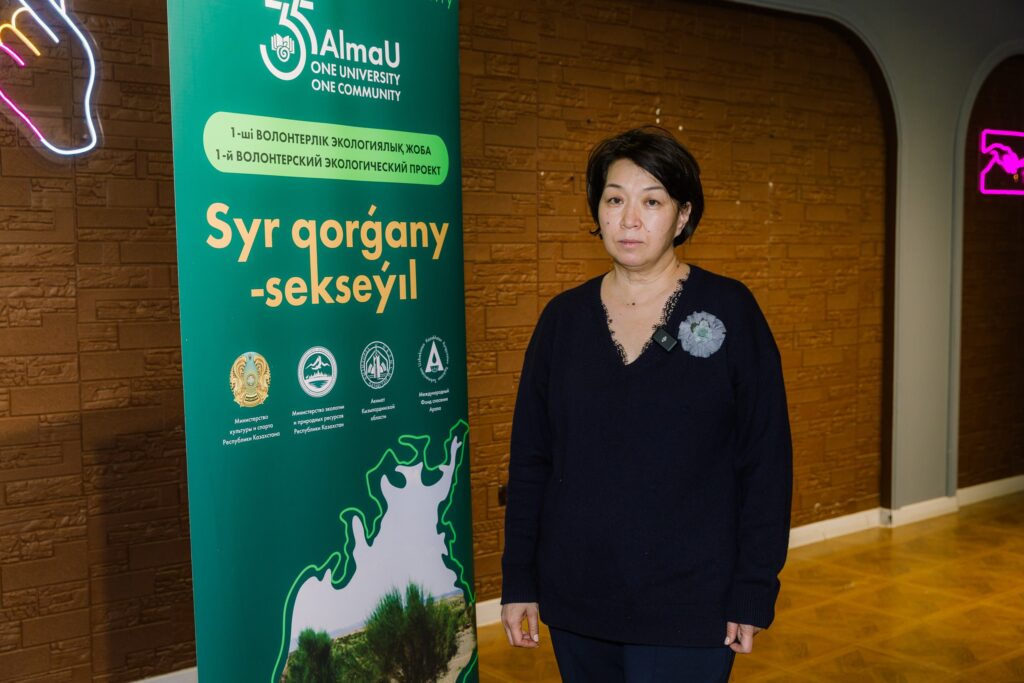
AlmaU is a socially responsible university that adheres to sustainable development goals and organizes environmental projects every year. Since 2019, the ice crossing “Uly Balkash Shakyrdy!” has been taking place. Attracting as many people as possible to environmental issues is a priority for us. Following these values, we decided to support the volunteer environmental project “Syr qorǵany – sekseýil.” It is worth noting that this is an expensive and complex project that does not pursue commercial interests. AlmaU volunteers were transported at their own expense and with sponsorship funds,” said AlmaU Rector Gulnar Kurenkeeva.
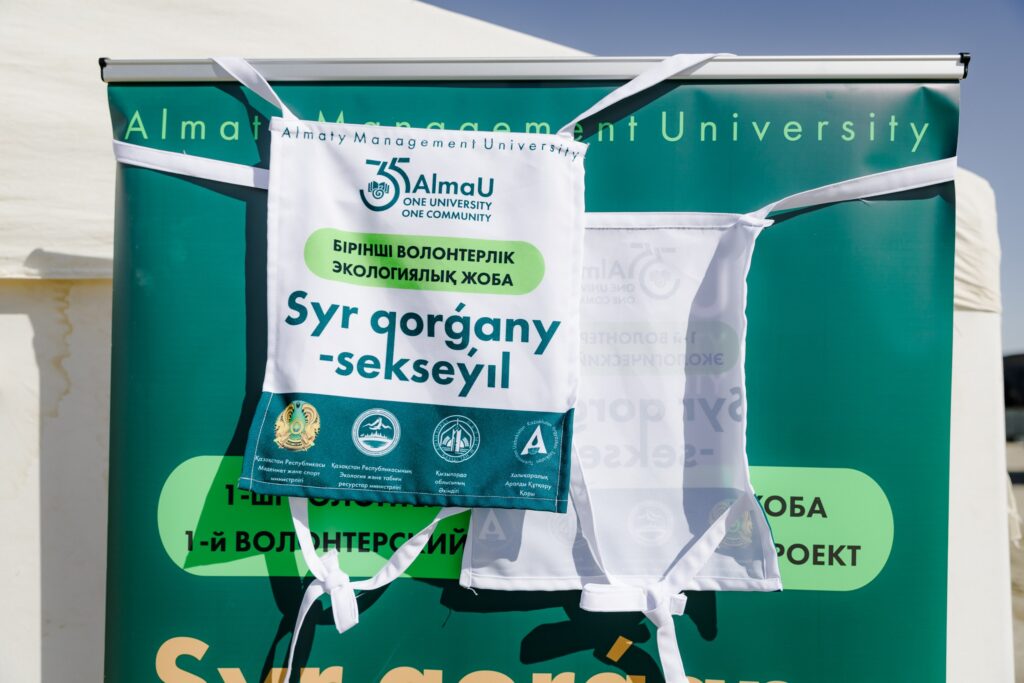
On behalf of Almaty Management University, we would like to thank our sponsors Global Foods and Polymetal International PLC (POLY). We would also like to express our gratitude to Safia water and the Asyl Dan brand for providing 100 kilograms of rice.


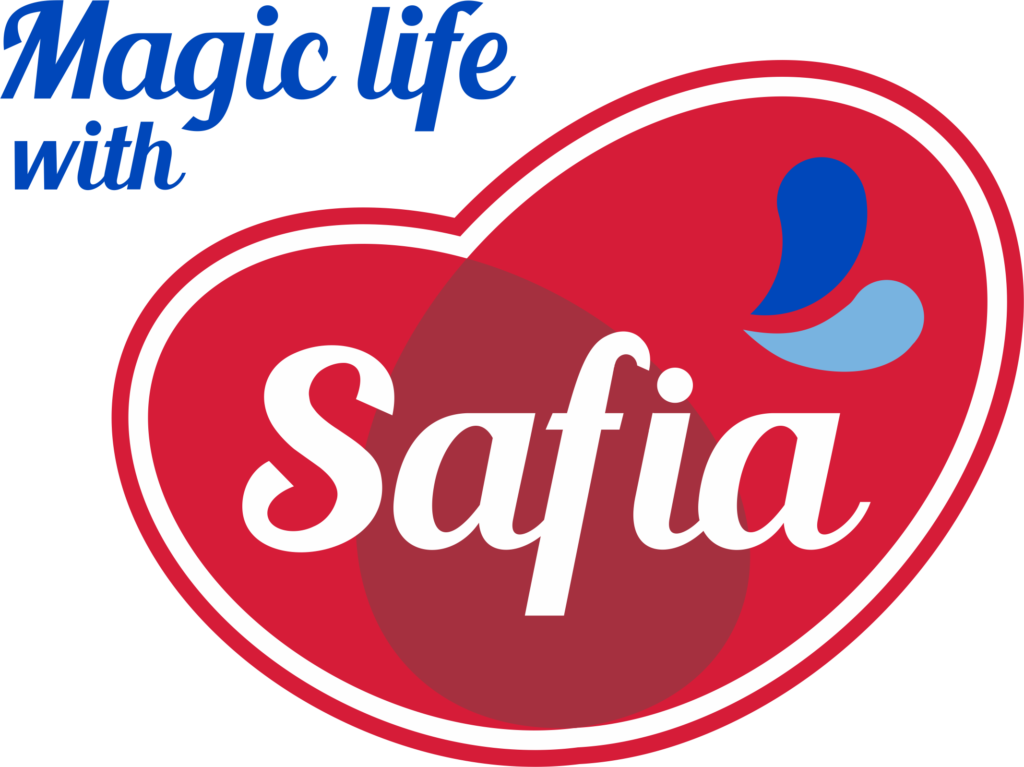

Finally, we would like to acknowledge the highly professional work and significant contribution to the implementation of such a large project by the following AlmaU employees: project managers Ainara Nurgaliyeva and Daria Krylova. We would also like to thank the organizational team represented by Aidana Aitbay, Dana Kubey, Aruzhan Shinture, Gulmira Mukhanova, Madina Esirkeppova, Azamat Auezhan, Aituar Kasymkhanov, and Timur Fedorov. We would like to express our gratitude to the working group consisting of Indira Madyarova, Akmaral Tokmurzieva, Zhazira Baidaly, Tatiana Posivnaya, Karina Sagintaeva, Zhanna Anesova, and Gulzhanat Iskendirova.